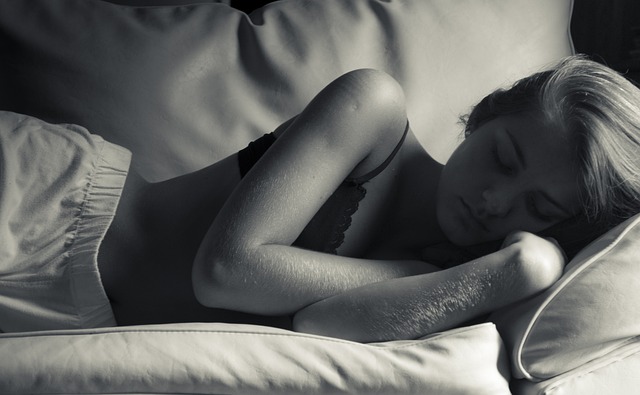When Coffee Makes You Sleepy: Understanding the Paradox
Coffee, a popular beverage consumed globally, is widely known for its stimulating effects and impact on brain function. Many people rely on coffee to increase alertness, combat fatigue, and boost productivity. However, some individuals may experience an unexpected reaction: coffee making them feel sleepy. This essay will delve into the reasons behind this paradox and discuss ways to counteract this undesired effect.
Caffeine’s impact on the body
Caffeine, the primary active ingredient in coffee, is a central nervous system stimulant that works by blocking the action of adenosine, a neurotransmitter responsible for promoting relaxation and sleepiness. Under normal circumstances, adenosine levels gradually rise throughout the day, leading to increased feelings of drowsiness. Caffeine’s interference with adenosine receptors results in increased alertness and wakefulness. However, several factors can contribute to coffee causing sleepiness instead of providing the expected energy boost.
Reasons coffee may make you sleepy
1. Dehydration
Caffeine has diuretic properties, which can lead to increased urination and fluid loss. Dehydration can cause feelings of fatigue and drowsiness, counteracting the stimulating effects of caffeine. Moreover, dehydration can also lead to reduced blood volume, causing the heart to work harder to supply oxygen and nutrients to the body. This increased workload can contribute to feelings of tiredness.
2. Sugar crash
Coffee beverages, especially those loaded with sugar and syrups, can cause a rapid spike in blood sugar levels, followed by a sudden drop. This sugar crash can result in feelings of drowsiness and lethargy, as the body struggles to maintain stable energy levels. The addition of high-fat dairy products, such as whipped cream or whole milk, can exacerbate this effect by slowing the absorption of sugar into the bloodstream and prolonging the sugar crash.

3. Caffeine tolerance
Regular consumption of caffeine can lead to the development of tolerance, causing the body to become less responsive to its stimulating effects. As a result, individuals may feel sleepy after consuming coffee, as the caffeine no longer provides the expected boost in alertness. Caffeine tolerance can develop quickly, with some studies suggesting that noticeable tolerance can occur within just a few days of regular consumption.
4. Adenosine rebound
While caffeine temporarily blocks adenosine receptors, it does not stop the production of adenosine. As the caffeine wears off, adenosine levels can surge, leading to increased feelings of sleepiness. This adenosine rebound effect can be particularly pronounced in individuals who consume large amounts of caffeine or those who have developed a tolerance to its effects.
5. Circadian rhythm disruption
Caffeine consumption can also interfere with the body’s natural circadian rhythms, which regulate sleep-wake cycles. Consuming coffee too late in the day can disrupt the normal release of melatonin, a hormone responsible for regulating sleep. This disruption can lead to poorer sleep quality, causing feelings of drowsiness and fatigue the following day.

Strategies to prevent coffee-induced sleepiness
1. Stay hydrated

To counteract the dehydrating effects of caffeine, ensure adequate water intake throughout the day. This can help maintain proper hydration levels and prevent feelings of fatigue. A general guideline is to consume at least eight 8-ounce glasses of water per day, but individual needs may vary based on factors such as body weight, activity level, and climate.
2. Opt for unsweetened coffee
Choose black coffee or unsweetened beverages to avoid the blood sugar fluctuations caused by sugary coffee drinks. This can help prevent the sugar crash that contributes to drowsiness. Additionally, selecting low-fat dairy alternatives or plant-based milk can help minimize the impact of added fats on blood sugar levels and energy fluctuations.
3. Manage caffeine intake
To reduce the development of caffeine tolerance, consider moderating your caffeine intake, cycling on and off caffeine, or taking occasional breaks from consuming it. This can help maintain your sensitivity to caffeine and ensure that it continues to provide the desired stimulating effects. Additionally, be mindful of the caffeine content in other foods and beverages, such as tea, chocolate, and certain medications, as these can also contribute to overall caffeine intake and tolerance development.

4. Timing of coffee consumption
By consuming coffee strategically, such as early in the day or before engaging in activities that require alertness, you can minimize the impact of adenosine rebound on sleepiness. Avoiding caffeine consumption too close to bedtime can also help preserve sleep quality and maintain natural circadian rhythms, reducing the likelihood of experiencing drowsiness and fatigue during waking hours.
5. Optimize sleep quality
Ensure that you are getting enough sleep and practicing good sleep hygiene to promote overall restfulness and reduce the need for caffeine to combat fatigue. Establishing a consistent sleep schedule, creating a comfortable sleep environment, and limiting exposure to screens and other sources of artificial light before bedtime can all contribute to better sleep quality.
6. Consider alternative sources of energy
If coffee consistently makes you sleepy, it may be worth exploring alternative sources of energy and alertness. Some options include:
- Green tea, which contains lower levels of caffeine and also provides the calming amino acid L-theanine.
- Natural energy-boosting supplements, such as Rhodiola rosea, ginseng, or B vitamins.
- Engaging in physical activity, which can help increase blood flow, oxygenate the brain, and boost energy levels.
III. Conclusion
Although coffee is widely known for its stimulating effects, it can paradoxically lead to feelings of sleepiness in some individuals. This phenomenon can be attributed to factors such as dehydration, sugar crashes, caffeine tolerance, adenosine rebound, and circadian rhythm disruption. By implementing strategies such as staying hydrated, opting for unsweetened coffee, managing caffeine intake, timing coffee consumption, optimizing sleep quality, and considering alternative sources of energy, one can reduce the likelihood of experiencing sleepiness after consuming coffee. To learn more about coffee and its effects on the body, explore Top Cafe Blog.







